This week, he’ll turn 60 in prison. In the spring of 2016, when he first traveled from the United States to Iran to attend his father’s funeral, neither he nor anybody else imagined it would end up this way.
Shahab Dalili is a retired captain in Iran’s merchant navy and a permanent resident of the US. His wife and children are US citizens. He was arrested by agents of the Intelligence Ministry as he was on his way back to the airport after laying his father to rest. Later, he was charged with “harming national security through cooperation with a hostile country” – in this case, the US – and sentenced to 10 years in prison.
For years, his family decided not to speak publicly about the case for fear of jeopardizing any possible release. But the US State Department was kept well aware of the situation. What finally pushed them to speak out was the ongoing talks to revive the JCPOA; activists have rightly clamored for the release of numerous, named dual nationals as part of a deal, but Shahab Dalili’s name was not among them.
Now Shahab’s wife, Nahid Dalili, has decided to break her silence. “If there is any agreement,” she said, “I want to make sure all the hostages are set free.” The below is a transcript of that interview.
Who is Shahab Dalili?
My husband was born in 1962 and will turn 60 in a few days. He was a ship’s captain, and had been retired for three years. He’d paid other visits to Iran before and never had any problems. On April 1, 2016, a year after we came to America, my husband returned to Iran after his father died. He was supposed to come back a week later, but he was arrested.
When we came to America, he tried to find a job that matched his professional past, but wasn’t successful. We both found that we had to take special courses to get the certification this country accepts. So, for the year he was living in the US, he didn’t have a job. He wanted to open an office as a consultant for shipping affairs, so he could gradually find a job in the field, but he had yet to start when he went back to Iran.
Your husband was charged with “collaborating with hostile states”. What evidence to prove this was presented at the trial?
I don’t remember that the verdict cited any evidence. But what they meant was that he had provided some information about his job to the US. As his wife, I can tell you with certainty that while he was in America he didn’t form any relations, or find any job, related to his profession. Little by little, we were thinking about getting ordinary jobs like working in shops, jobs like that. After a year we had to do something to secure an income. It never crossed my mind that he knew any secret information. He was a ship’s captain. His job was not a secret.
How did you learn that Mr. Dalili had been arrested?
The night he was due to fly out from Iran, he called from my mother’s home and said that he was just leaving for the airport. He said that when he reached the UAE, he’d call again using the airport’s Wi-fi. But no call ever came.
I assumed he hadn’t been able to connect to the Wi-Fi, so at 5pm, when his flight was supposed to land, I went to Dallas Airport in Washington. I waited for him there. All the passengers came out, but Shahab was not among them. I asked, and found out that Shahab had not boarded the plane in the UAE. I asked if somebody had been left behind, and they said no.
It was night-time in Iran, so I left messages for everybody and told them Shahab had not come back, and asked them to find out what had happened. One of my friends, who knew people at the airport in Iran, asked around and told me Shahab had never arrived at the airport.
The driver of the agency car who was taking Shahab to the airport hadn’t arrived either. He told the police station that two cars with plainclothes passengers had pulled him over. He said they ordered Shahab out of the car and to take his suitcases with him. The police confirmed this to my mother when she went to the station.
Forty-eight hours later, Shahab called my mother and told her he had been arrested but he was in good health. Then, for a month, or perhaps five weeks, we had no news of him. He was in solitary confinement and under interrogation. Then he was taken to the communal ward, and he’s been able to call since then. His sister is in Iran, and she can visit him and bring him what he needs.
Has he told you anything about his time in solitary confinement and the interrogations?
He was put under a lot of pressure. In solitary confinement, he was in cell with a light that was left on day and night. The interrogators sat him down, asked him questions, and told him things he had to write down and sign. They told him his wife had come to Iran, and he became very worried about me and the children.
When he told me, I asked him why he was signing these papers and confessing to things he had not done. “Anybody in my situation would have done the same,” he told me. “For a whole month I had no news from anybody. I was told you were in Iran. I didn’t know what the children’s situation was. I was stressed out and I wanted to speak with somebody outside to ask how you were and what you were doing. But I had to sign these papers before they’d let me out of solitary.”
You were silent for more than six years. Was it because you were under pressure from the security agencies?
After Shahab was arrested, someone contacted me two or three times through Telegram and promised to help if I paid them money and stayed silent. I really don’t know who they were. Later, when I spoke with my husband, he said other prisoners had had similar experiences: individuals called the families and asked for money. They might be from the security agencies, or they might be swindlers. After Shahab was convicted, the Telegram accounts that had contacted me were deleted, meaning I now have no way of finding out.
The other reason for my silence was we had emigrated just a year ago, and we had to deal with the stress of that and the problems my younger son was having in high school. Teachers informed me that my son was anxious and uncommunicative.
When my husband was arrested, my younger son was dealt the biggest shock. I myself was shocked; I couldn’t believe such a thing had happened. I cried whenever I wanted to speak with anybody ,and my young son asked me not to talk with anybody if all I was going to do was cry. My son was being put in a very difficult situation because of this, so I accepted it, and my contact with members of the family stopped. Everybody understood that I didn’t want to speak, to anybody.
I have to ask you: What did you do throughout these six years?
I have two sons. My younger son was 14 and my older son was almost 20. When we left Iran, our main goal was for our children to study here. As I said, my younger son was badly shocked but my older son took it better. He was a great help to the family. He worked full time during his studies and he’s now close to graduation.
I myself worked two jobs. Then, two years after Shahab was arrested, I came to myself and was surprised by how much I’d worked. Perhaps it was a defensive reaction; I wanted to keep myself busy somehow. Little by little, the family was able to cope and live with the situation. But the first two years were very difficult.
When was the last time you talked to Mr. Dalili?
He called today. He knows my off-days and he calls me using a special card for international calls that’s filled out in prison.
What is his situation right now?
My husband has very good morale and never complains about anything. He tolerates the same, abnormal situation as other prisoners in the communal ward, but it seems he’s not being put under any specific pressures like being cut off from the phone.
What does he think of you talking to the media about his situation?
At first, when I wanted to tell the media about his arrest, I consulted him. He said, “In here I have no news of anything. I leave the decision to you.” Now I tell him on the phone that I have given an interview, or I’m going to a meeting, and so on.
How come you broke your silence?
While negotiations that might reach an agreement are under way, we repeatedly hear the names of four hostages — Baquer Namazi, Siamak Namazi, Morad Tahbaz, Emad Sharghi — who are in prison on charges similar to those aimed at Shahab. But Shahab’s name is not among them. So I decided to raise my voice.
I’ve been in contact with the US State Department for four long years. I have given them Shahab’s name as a prisoner who has been convicted of “collaborating” with America. They have always sympathized with me and have promised to cooperate but now that I see that repeatedly talk about those four hostages but not about Shahab.
I want them to hear me through the media. If there is an agreement and the hostages are released, nobody should be left behind. As citizens, we expect the Biden administration and the negotiating team to bring Shahab home.
visit the accountability section
In this section of Iran Wire, you can contact the officials and launch your campaign for various problems




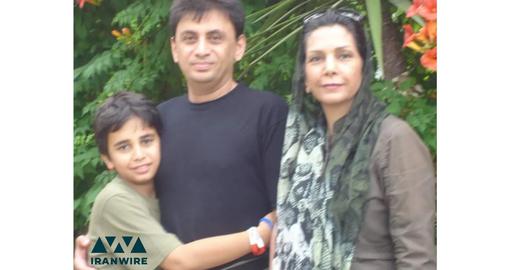
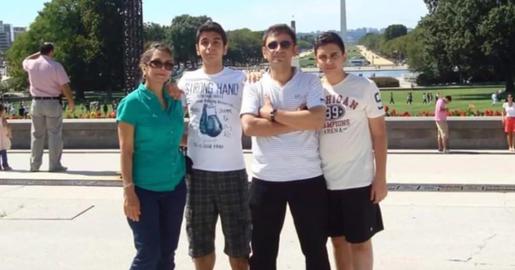
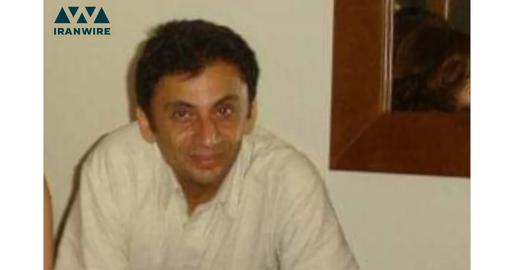
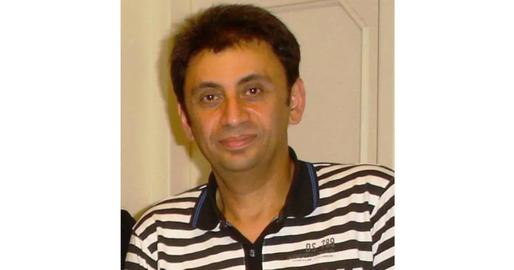



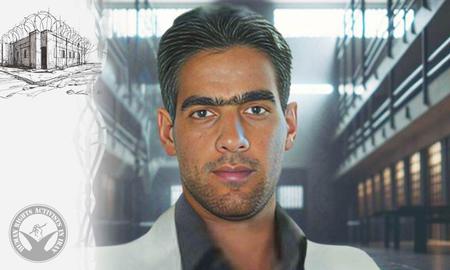


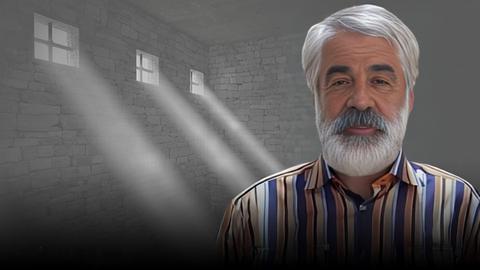

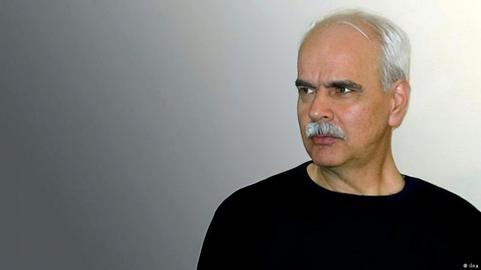
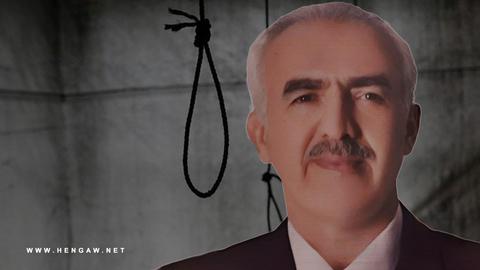
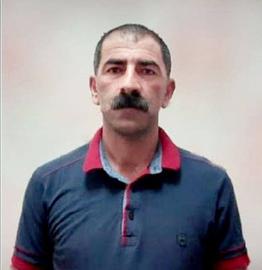


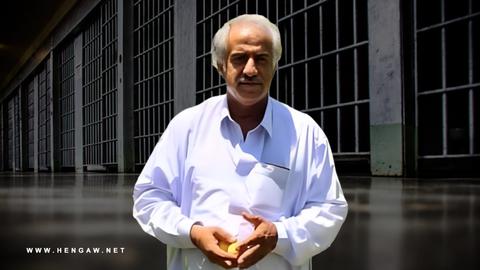



comments